Reason and Responsibility: Readings in Some Basic Problems of Philosophy 16th Edition (eBook PDF)
$50.00 Original price was: $50.00.$35.00Current price is: $35.00.
Reason and Responsibility: Readings in Some Basic Problems of Philosophy 16th Edition (eBook PDF) – Instant Download
Reason and Responsibility: Readings in Some Basic Problems of Philosophy 16th Edition (eBook PDF) – Digital instant download.

product details:
- ISBN-10 : 9781305502444
- ISBN-13 : 978-1305502444
- Author: Joel Feinberg (Author), Russ Shafer-Landau (Author)
REASON AND RESPONSIBILITY: READINGS IN SOME BASIC PROBLEMS OF PHILOSOPHY, 16th Edition, has a well-earned reputation for clarity and breadth, with a selection of high-quality readings that cover centuries of philosophical debate. The anthology covers the central issues in metaphysics, epistemology, philosophy of religion, philosophy of mind, and ethics, as well as debates over the value of philosophy and the meaning of life. The book is clearly organized: the readings complement each other, guiding you through contrasting positions on key philosophical issues. Clear, concise introductions provide reading tips and background information to help you engage directly and meaningfully with the primary sources.
table of contents:
Part I: INTRODUCTION TO THE NATURE AND VALUE OF PHILOSOPHY.
1. Joel Feinberg: A Logic Lesson. 2. Plato: “Apology.” 3. Bertrand Russell: The Value of Philosophy.
PART II: REASON AND RELIGIOUS BELIEF.
1. The Existence and Nature of God.
1.1 Anselm of Canterbury: The Ontological Argument, from Proslogion. 1.2 Gaunilo of Marmoutiers: On Behalf of the Fool. 1.3 L. Rowe: The Ontological Argument. 1.4 Saint Thomas Aquinas: The Five Ways, from Summa Theologica. 1.5 Samuel Clarke: A Modern Formulation of the Cosmological Argument. 1.6 William L. Rowe: The Cosmological Argument. 1.7 William Paley: The Argument from Design. 1.8 Michael Ruse: The Design Argument. 1.9 David Hume: Dialogues Concerning Natural Religion.
2. The Problem of Evil.
2.1 Fyodor Dostoyevsky: Rebellion. 2.2 J. L. Mackie: Evil and Omnipotence. 2.3 Peter van Inwagen: The Argument from Evil. 2.4 Michael Murray and Michael Rea: The Argument from Evil. 2.5 B. C. Johnson: God and the Problem of Evil.
3. Reason and Faith.
3.1 W. K. Clifford: The Ethics of Belief. 3.2 William James: The Will to Believe. 3.3 Kelly James Clark: Without Evidence or Argument. 3.4 Blaise Pascal: The Wager. 3.5 Lawrence Shapiro: Miracles and Justification. 3.6 Simon Blackburn: Infini-Rien.
Part III. HUMAN KNOWLEDGE: ITS GROUNDS AND LIMITS.
1. Skepticism.
1.1 John Pollock: A Brain in a Vat. 1.2 Michael Huemer: Three Skeptical Arguments. 1.3 Robert Audi: Skepticism.
2. The Nature and Value of Knowledge.
2.1 Plato: Knowledge as Justified True Belief. 2.2 Edmund Gettier: Is Justified True Belief Knowledge? 2.3 James Cornman, Keith Lehrer, and George Pappas: An Analysis of Knowledge. 2.4 Gilbert Ryle: Knowing How and Knowing That. 2.5 Plato: “Meno”. 2.6 Linda Zagzebski, Epistemic Good and The Good Life.
3. Our Knowledge of the External World.
3.1 Bertrand Russell: Appearance and Reality and the Existence of Matter. 3.2 René Descartes: Meditations on First Philosophy. 3.3 John Locke: The Causal Theory of Perception. 3.4 George Berkeley: Of the Principles of Human Knowledge. 3.5 G. E. Moore: Proof of an External World.
4. The Methods of Science.
4.1 David Hume: An Inquiry Concerning Human Understanding. 4.2 Wesley C. Salmon: An Encounter with David Hume. 4.3 Karl Popper: Science: Conjectures and Refutations. 4.4 Philip Kitcher: Believing Where We Cannot Prove.
Part IV: MIND AND ITS PLACE IN NATURE.
1. The Mind-Body Problem.
1.1 Brie Gertler: In Defense of Mind–Body Dualism. 1.2 Frank Jackson: The Qualia Problem. 1.3 David Papineau: The Case for Materialism. 1.4 Paul Churchland: Functionalism and Eliminative Materialism.
2. Can Non-Humans Think?
2.1 Alan Turing: Computing Machinery and Intelligence. 2.2 John R. Searle: Minds, Brains, and Programs. 2.3 William G. Lycan: Robots and Minds.
3. Personal Identity and the Survival of Death.
3.1 John Locke: The Prince and the Cobbler. 3.2 Thomas Reid: Of Mr. Locke’s Account of Our Personal Identity. 3.3 David Hume: The Self. 3.4 Derek Parfit: Divided Minds and the Nature of Persons. 3.5 Shelly Kagan: What Matters. 3.6 John Perry: A Dialogue on Personal Identity and Immortality.
Part V: DETERMINISM, FREE WILL, AND RESPONSIBILITY.
1. Libertarianism: The Case for Free Will and Its Incompatibility with Determinism.
1.1 Roderick M. Chisholm: Human Freedom and the Self. 1.2 Robert Kane: Free Will: Ancient Dispute, New Themes.
2. Hard Determinism: The Case for Determinism and its Incompatibility with Its Incompatibility with Any Important Sense of Free Will.
2.1 James Rachels: The case against Free Will. 2.2 Derk Pereboom: Why We Have No Free Will and Can Live Without It. (Modified in this edition)
3. Compatibilism: The Case for Determinism and Its Compatibility with the Most Important Sense of Free Will.
3.1 David Hume: Of Liberty and Necessity. 3.2 Helen Beebee: Compatibilism and the Ability to do Otherwise.
4. Freedom and Moral Responsibility.
4.1 Galen Strawson: Luck Swallows Everything. 4.2 Harry Frankfurt: Alternate Possibilities and Moral Responsibility. 4.3 Thomas Nagel: Moral Luck. 4.4 Susan Wolf: Sanity and the Metaphysics of Responsibility.
Part VI: MORALITY AND ITS CRITICS.
1. Changes to Morality.
1.1 Joel Feinberg: Psychological Egoism. 1.2 Plato: The Immoralist’s Challenge. 1.3 Friedrich Nietzche: Master and Slave Morality. 1.4 Richard Joyce: The Evolutionary Debunking of Morality.
2. Proposed Standards and Right of Conduct.
2.1 Russ Shafer-Landau: Ethical Subjectivism. 2.2 Mary Midgley: Trying Out One’s New Sword. 2.3 Aristotle: Virtue and the Good Life. 2.4 Thomas Hobbes: Leviathan. 2.5 Plato: Euthyphro. 2.6 Immanuel Kant: The Good Will and the Categorical Imperative. 2.7 J.S. Mill: Utilitarianism, Chapters 2 and 4. 2.8 W. D. Ross: What Makes Right Acts Right? 2.9 Hilde Lindemann: What Is Feminist Ethics?
3. Ethical Problems.
3.1 Kwame Anthony Appiah: What Will Future Generations Condemn Us For? 3.2 Peter Singer: Famine, Affluence and Morality. 3.3 John Harris: The Survival Lottery. 3.4 James Rachels: Active and Passive Euthanasia. 3.5 Mary Anne Warren: The Moral and Legal Status of Abortion. 3.6 Don Marquis: Why Abortion Is Immoral.
4. The Meaning of Life.
4.1 Epicurus: Letter to Menoeceus. 4.2 Richard Taylor: The Meaning of Life. 4.3 Richard Kraut: Desire and the Human Good. 4.4 Leo Tolstoy: My Confession. 4.5 Susan Wolf: Happiness and Meaning. 4.6 Thomas Nagel: The Absurd.
people also search:
reason relativity and responsibility in computer ethics
reason and responsibility 15th edition pdf free
reason for responsibility accounting
federalism is the reason that power and responsibility are
why is responsibility so important
reason of responsibility center
diminished responsibility and not guilty by reason of insanity



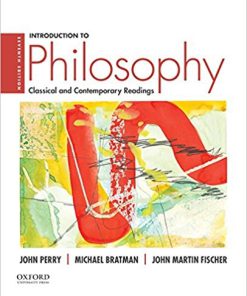
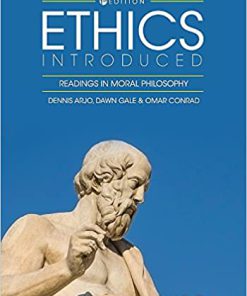

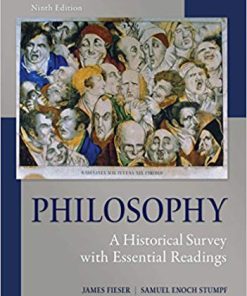

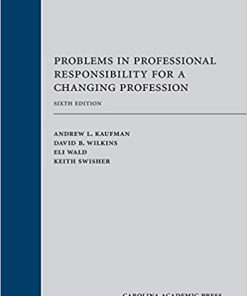
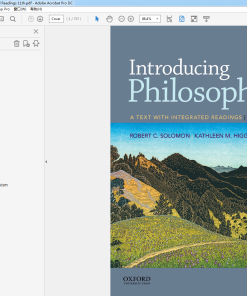
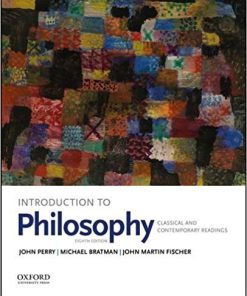
Ebook-PDF
(eBook PDF) Philosophy of Law: Classic and Contemporary Readings with Commentary
$50.00Original price was: $50.00.$35.00Current price is: $35.00.